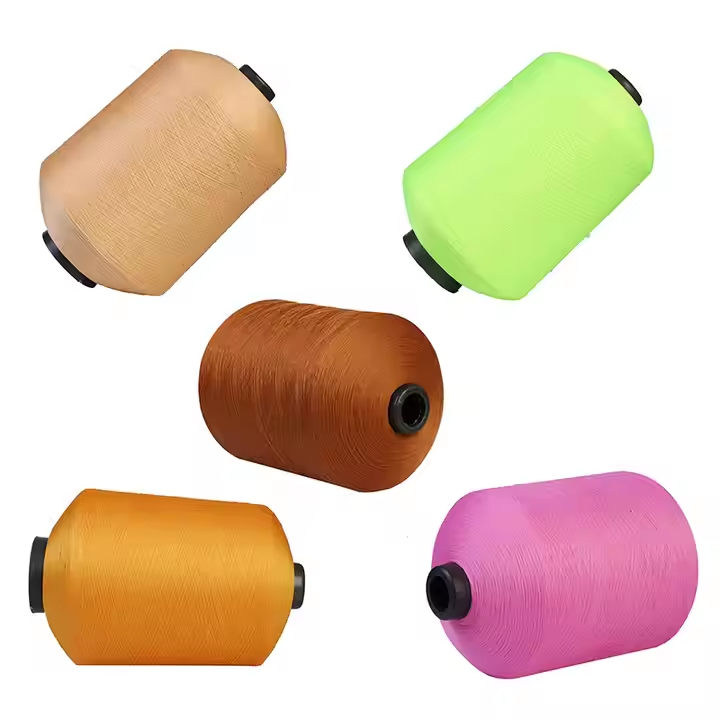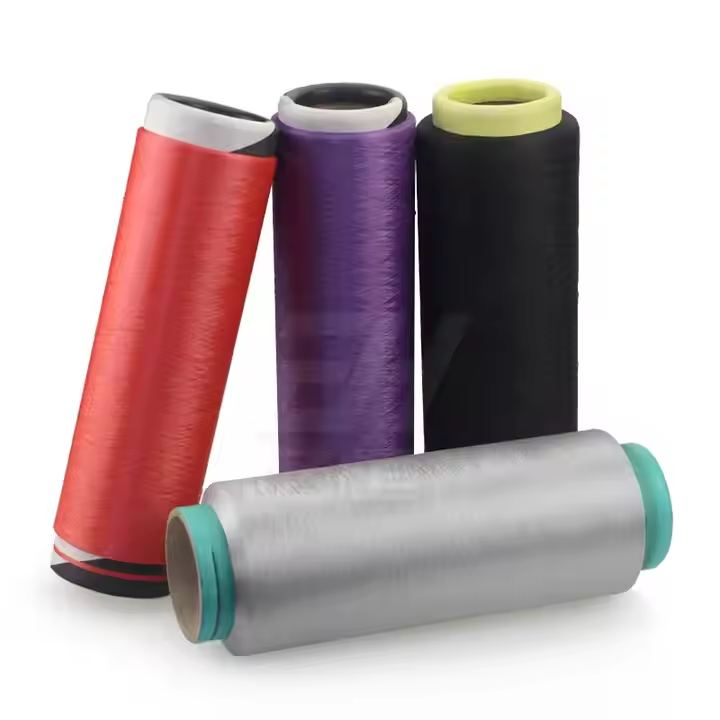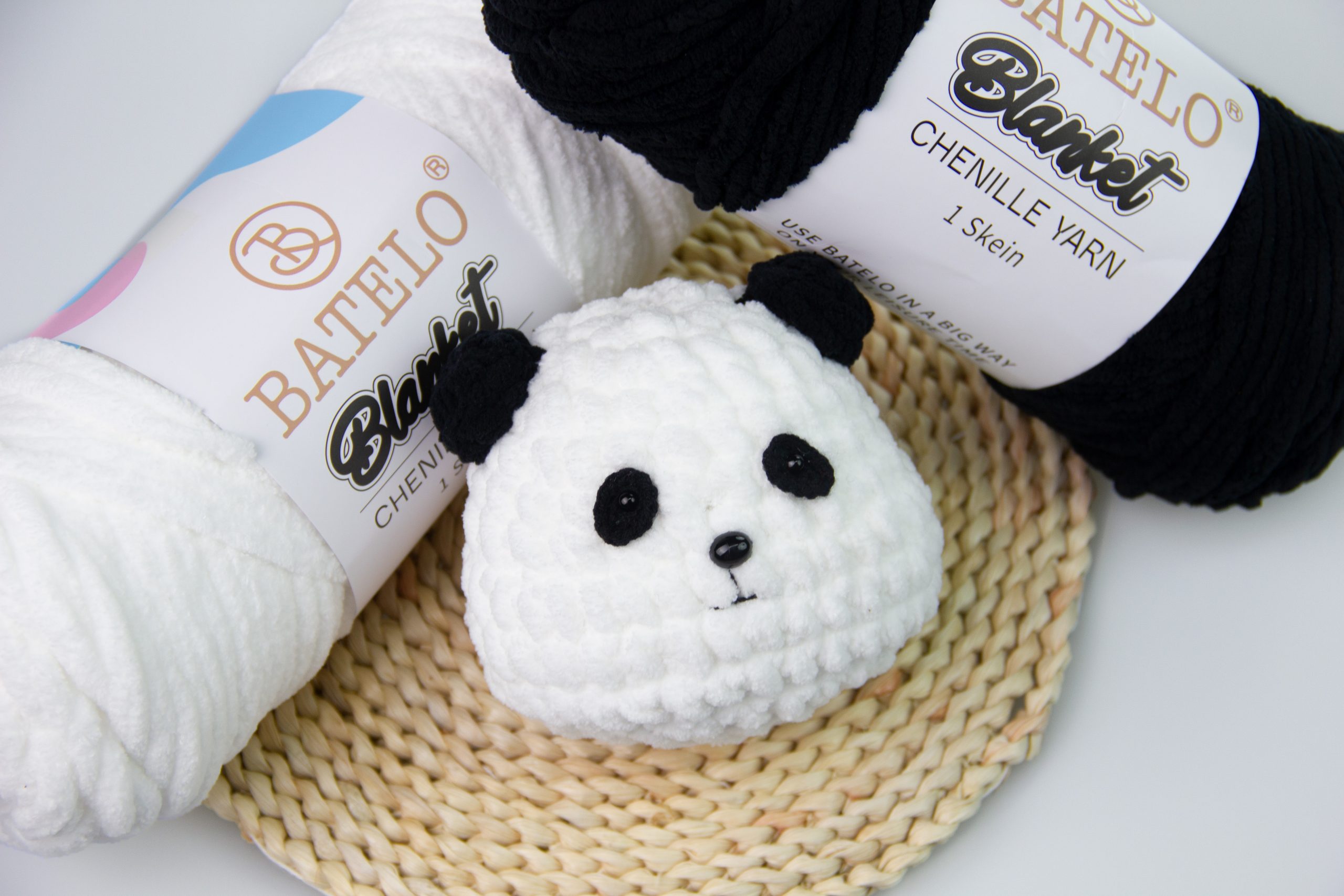Ocean recycled polyester yarn
Overview
Product Description
1. Product Definition & Environmental Core
Ocean recycled polyester yarn represents a pinnacle of sustainable textile innovation, crafted by transforming marine plastic waste—predominantly discarded fishing nets, post-consumer plastic bottles, and maritime packaging—into high-performance fiber through advanced physical recycling and chemical regeneration technologies. Each ton of this yarn produced eliminates approximately 3.2 tons of CO₂ emissions, equivalent to the carbon sequestration capacity of 156 mature trees over a decade. This not only addresses the urgent crisis of “white pollution” plaguing oceans but also redefines material circularity. With a breaking tenacity of 4.7–5.3 cN/dtex (tested per ASTM D2256) and colorfastness retaining 92% of original hue after 500 hours of UV exposure (ISO 105-B02), it surpasses virgin polyester in both ecological responsibility and mechanical durability.

2. Full-Cycle Eco-Friendly Process
Recycling Stage: Operated by certified marine cleanup crews, the initial phase involves deploying specialized vessels to collect macro-plastics from coastal ecosystems and open seas. Discarded fishing nets—often responsible for 46% of oceanic plastic waste—undergo a three-step sorting process: magnetic separation to remove metal fragments, flotation tanks to isolate PET polymers, and optical sorters to eliminate colored plastics. The material is then cryogenically crushed into 3–5 mm granules, achieving a 99.8% purity rate.Regeneration Stage: Employing dual technology pathways, either low-temperature physical extrusion (265–278°C with nitrogen inerting to prevent thermal degradation) or glycolysis-based chemical depolymerization, the granules are transformed into food-grade PET chips. This process reduces viscosity loss by 70% compared to conventional recycling, with trace impurities (heavy metals <0.005 ppm, VOCs <0.1 mg/kg) validated by GC-MS spectrometry.Spinning Stage: Using state-of-the-art air-jet spinning machines (operating at 4,200–4,800 m/min), the chips are extruded through spinnerets with modified orifices to create sea-island fiber structures. This nanoscale grooving increases specific surface area by 28%, enhancing wicking speed from 12 mm/30s to 16 mm/30s (AATCC 97 standard) and reducing drying time by 35%. The entire manufacturing chain consumes 42% less energy than virgin polyester production, with a closed-loop water system achieving 97% recycling efficiency.
3. Multidimensional Advantages & Applications
Ecological Certification & Performance Metrics:
- GRS (Global Recycling Standard) certified with 91.5% marine-derived content, verified by carbon isotope analysis
- OEKO-TEX Standard 100 Class I compliance, confirming absence of 194 restricted substances
- In simulated seawater conditions (3.5% salinity, 22°C), microbial degradation reaches 0.132% within 6 months, 12 times higher than conventional PET (ASTM D6691)
Technical Specifications:
- Denier range: 15D/12F to 300D/96F, supporting fine denier fabrics for activewear and heavy-duty industrial weaves
- Tensile modulus: 28–32 GPa, ensuring abrasion resistance for marine ropes (ASTM D3884)
- Pilling resistance: Grade 4–5 (ISO 12945-2), outperforming 80% of conventional outdoor fabrics
Application Ecosystem:
- Outdoor Industry: A leading adventure brand’s 3-layer hardshell jacket using 100% recycled yarn demonstrates 20,000 mm water column resistance and breathability of 15,000 g/m²/24h, while reducing lifecycle carbon footprint by 63% compared to virgin polyester models.
- Marine Engineering: Ship mooring cables spun from 200D recycled yarn exhibit 98% of the breaking strength of virgin polyester cables, tested to withstand 50,000 cycles of tensile stress (ISO 1833).
- Circular Economy Projects: In a collaborative initiative with European textile recyclers, the yarn is used in modular carpet tiles that can be re-spun into new fibers at end-of-life, achieving a 90% material recycling rate.
4. Sustainable Development Practices
As part of the “Ocean Plastic Pact”, the production network partners with 18 marine conservation organizations across 22 countries, allocating 1.5% of sales revenue to fund coastal cleanup operations. To date, this has enabled the recovery of 6,240 tons of marine plastic waste—enough to produce 2.3 million linear meters of yarn for eco-conscious brands. Innovations in post-consumer recycling are ongoing, with a pilot plant scheduled for 2024 to process mixed plastic waste using advanced depolymerization, aiming to increase recycled content to 98% while achieving net-zero carbon emissions by 2026. This commitment has been recognized with the “Sustainable Textile Award” from the Global Fashion Agenda, solidifying its role as a catalyst for the textile industry’s transition to a blue economy model.






